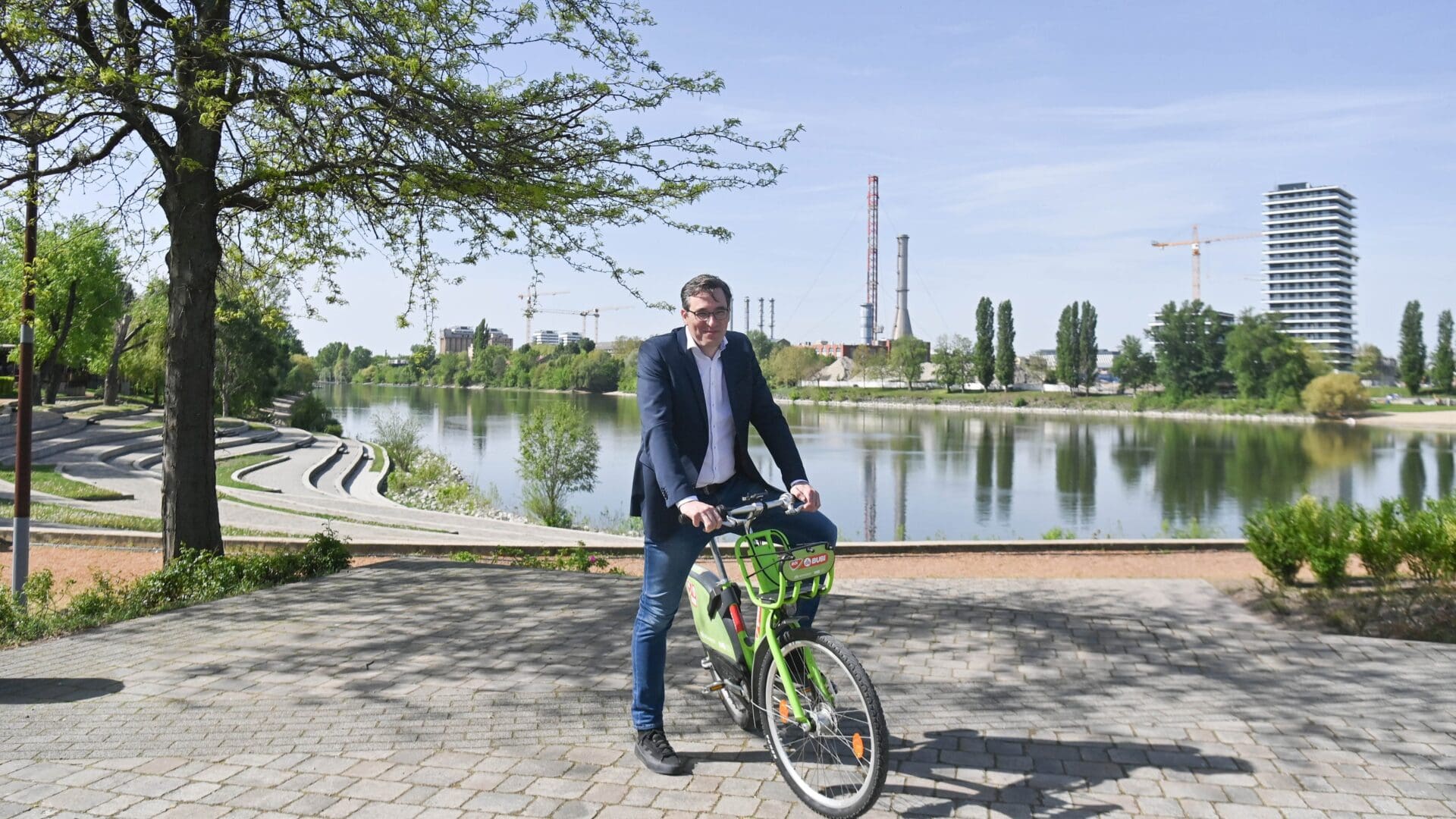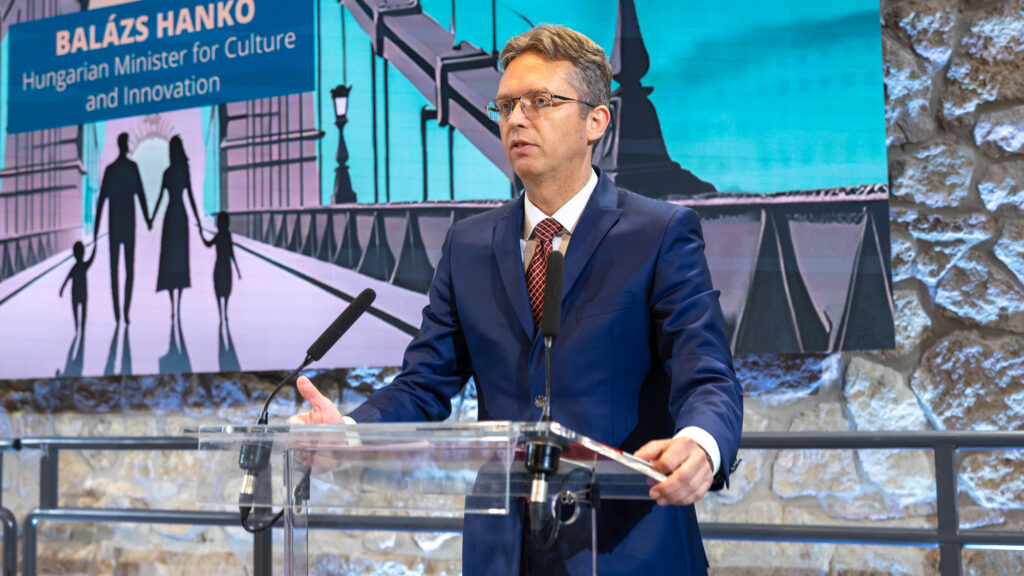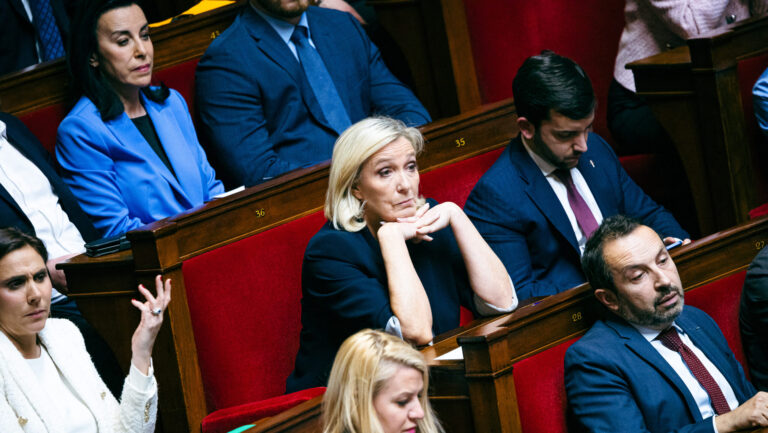Will Budapest remain a stronghold of the left? In short, this is what is at stake in the municipal elections to be held on 9 June 2024 in the Hungarian capital. As we also explained in an earlier article, in addition to the leadership of the individual districts, the fate of the mayor of Budapest will also be decided by the nearly 1.3 million voters of Budapest. Due to the particularities of the Hungarian electoral system the mayor of Budapest is practically the highest political office directly elected by citizens—the president by the National Assembly and the prime minister is not directly elected—, but the outcome of the June election is exciting not only because of this, but also because the capital has been the scene of daily party political battles since the last election.
Budapest: Swing Both Ways
Before we turn to the elections ahead, it is worth taking a look at the history of politics in Budapest over the past thirty years to better understand the complex situation of the capital. Budapest was founded in 1873, but it only took its present form in 1950, when a number of villages in the surrounding area were annexed to it. Budapest is divided into 23 districts of widely varying population and characteristics, each with its own municipality. The mayors of each district, the mayor of Budapest and politicians from a compensation list make up the Budapest Assembly, the most important decision-making body in the life of the capital.
As in most European capitals, Budapest has a tendency towards the left, which is evident from the results of local elections held since the fall of Communism. Between 1990 and 2010, the capital was led by Gábor Demszky of the liberal Alliance of Free Democrats (SZDSZ), to whom the dominant Socialists (MSZP) secured a majority. The Demszky era saw a number of major infrastructure projects in Budapest (a new bridge on the Danube, renovation of ageing metro lines, etc),
but it also saw a drastic deterioration in the quality of public services, public cleanliness and public safety in Budapest,
and a proliferation of corruption in municipalities and companies run mainly by the left.
The political fault lines within Budapest were also clearly visible during Demszky’s term of office: while suburban districts, mainly composed of wealthier neighbourhoods, tended to vote right, inner-city districts sympathised with the left. As the boundaries of Budapest’s districts were not established on a proportional basis, for historical reasons alone, the more numerous and populous inner-city districts provided the Socialists and Liberals with a power base in city hall for a long time. Only the 2010 local elections brought a change in this regard, when the residents of Budapest, which had become dysfunctional in many respects under Demszky’s leadership, voted the left-wing parties out of power in the vast majority of districts and elected a new mayor, István Tarlós of Fidesz, to lead the city.
Tarlós was elected mayor of Budapest at an exceptional time for two reasons. On the one hand, the 2010 parliamentary elections, which brought a landslide victory for Fidesz, provided an opportunity to exploit synergies between the country’s and the capital’s leadership, and on the other, thanks to the recovery of the European and Hungarian economies after the 2008 global economic crisis, the capital was able to benefit from the positive effects of the economic cycle and EU financial resources. Although a large part of the EU funds available to the capital was long blocked by the Demszky era’s perennial prestige project, the M4 metro line, which was meagerly completed at an expensive cost, some large-scale investments could be launched in Budapest after 2010, and the city’s public transport organisation also reached a new level, not least thanks to a certain Dávid Vitézy.
Fidesz also dominated the 2014 elections, but in some districts the successful Fidesz mayors of four years earlier failed to repeat their success. The traditionally socialist Angyalföld (13th district) and Kispest (19th district) remained in the hands of the MSZP, while in the 15th district the party of former scandal-hit socialist prime minister Ferenc Gyurcsány was able to nominate a mayor, and in the 14th district the leftist Gergely Karácsony emerged, who after his completely unsuccessful candidacy for prime minister in 2018 became Tarlós’s challenger in the 2019 mayoral election.
How Did Budapest Become a Political Battleground (Again)?
The 2019 Budapest municipal elections were a great success for the opposition parties running in a coordinated way. There are several reasons for this: on the one hand, a major political scandal involving a rural Fidesz mayor broke out before the election, and on the other, Fidesz and Tarlós ran a relatively weak campaign in the capital, due in no small part to the party’s ambivalent relationship with Budapest. Several previously stable Fidesz districts elected opposition mayors, and Karácsony defeated Tarlós in the mayoral election.
During his combative campaign,
Gergely Karácsony offered a green turn to the people of Budapest,
promising to increase urban green spaces, improve public transport, upgrade cycling infrastructure, and reduce car traffic. The capital’s residents were also promised an improvement in housing, which is much needed in Budapest, where rents have risen sharply in recent years.
However, the youthful image of Karácsony was part of a package deal: since his candidacy for mayor was not primarily due to his name recognition, effectiveness or popularity in the first place, but to his left-wing backroom deals, a number of cadres have returned to his city hall post-election, who had already demonstrated their greed and corruption during the Demszky era.
But the return of the old faces was far from the only consequence of Karácsony’s election victory. The left, which had been mostly unsuccessful in recent national elections, managed to win the mayor’s post with unmatched direct democratic legitimacy, and in addition it was precisely Gergely Karácsony who, unlike the vast majority of the most influential leftist politicians, had not yet been (too) discredited in the eyes of the national public. Even though Karácsony had by that time already been through a totally unsuccessful campaign for prime minister and several audio recordings of him were leaked, in which he detailed that the 14th district he had previously led was actually run by Socialist cadres, the new mayor was still popular among left-wing voters—and he had not yet abandoned his ambitions to become prime minister.
The first year and a half of Karácsony’s term was virtually washed out by the COVID epidemic, but the main characteristics of his tenure quickly emerged: Budapest City Hall went into campaign mode almost immediately after the elections, with the main message that the last refuge of Hungarian democracy was the ‘Budapest Republic’, which, under the leadership of Gergely Karácsony could still save the country from the scheming Fidesz. Although the pro-government media had been echoing since the election campaign that Karácsony was unfit to lead the capital—which was not much of an exaggeration given his track record as mayor of the 14th district—, the most damaging blow to the belligerent mayor’s prospects came when the government, partly for political reasons and partly in response to the effects of the economic crisis caused by COVID, repeatedly cut resources to Budapest, which had essentially been transformed into an opposition stronghold by then.
Although Budapest has indeed received less central funding than before (while the city’s own revenues have not decreased nearly as dramatically), under Karácsony’s reign since 2019, the modernisation of the worn-out M3 metro line and the symbolic renovation of the Chain Bridge have been completed—albeit with external funding. This period also saw the renovation of the infamous Blaha Lujza square (which did not bring much innovation compared to its 1970s image) and the controversial installation of cycle lanes on the capital’s main transport routes, which, some argue, have exacerbated the already frustrating traffic jams.
However, Gergely Karácsony, who could even compete with Donald Trump in terms of brazenness, was not bothered by the critical voices. The mayor’s passion for Budapest has been repeatedly expressed, but this has not prevented him from trying again in 2022 to run for prime minister. He eventually withdrew in the opposition primaries in favour of the more popular Péter Márki-Zay.
The Race is Heating Up
The political importance of governing Budapest is hard to overstate, and all parties are aware of this: it is Hungary’s most populous city and one of its most prominent economic areas. For Fidesz alone, another election defeat here would be unpleasant, but the governing party has bigger problems: it is hard to find among its experienced and well-known politicians someone who is truly qualified to be the mayor of Budapest. Gergely Karácsony’s positions are very strong in the capital, despite his actual record as mayor, and so the chances of a Fidesz challenger winning are also lower. Fidesz therefore risks a big loss of prestige if it runs an experienced politician in this hard-to-win election, but building and running a newcomer is no less risky in the opposition-majority capital.
As an interim solution, the party finally chose Alexandra Szentkirályi, who was deputy mayor of Budapest between 2014 and 2019, but gained greater prominence from 2020, when she was appointed government spokesperson. As deputy mayor, Szentkirályi—who is married to defence minister Kristóf Szalay-Bobrovniczky in civilian life—was mainly involved in human affairs, but remained invisible in the more political matters that shaped the life of the city, which were also part of István Tarlós’s portfolio.
So far, little of Szentkirályi’s programme has been outlined. It is to be expected, of course, that government funds will find their way back to the capital once she is elected, but for the time being, all the people of Budapest have received from Szentkirályi is a ‘concrete’ promise that she will lead the capital out of the ‘Gyurcsány era’, which it had reached under the leadership of Gergely Karácsony. This is basically a rehash of Fidesz's 2019 campaign messages—the only difference is perhaps that it has since emerged that Karácsony may not really be the best man for the position of Budapest’s mayor.
At the time of writing, however,
it is not Alexandra Szentkirályi who poses the greatest threat to Gergely Karácsony’s re-election ambitions.
Dávid Vitézy, who gained more prominence during István Tarlós’s first term as CEO of the Centre for Budapest Transport, has also recently announced his candidacy for the mayoralty. Vitézy was in his twenties back in the Tarlós era, but was by no means inexperienced, and has since grown into a respected transport policy expert on both sides of politics. Dávid Vitézy is also close to Fidesz because of his family background, and in recent years he has been seen around several government projects, but has not become a major figure within the ruling party—in large part due to his well-known antagonism with the influential János Lázár.
Vitézy’s candidacy had been in the air for some time, with many people talking about him as a possible Fidesz candidate, but he finally threw his hat into the ring with the support of the left-green micro-party LMP. The concept behind the candidacy is clear: Vitézy is theoretically capable of appealing to voters on both sides and has a good knowledge of both Budapest and national politics. But third-party candidates always run a high risk because, if elected, they will immediately find themselves facing two opposing camps—one of which could also make their lives financially miserable. Although not much is known about Vitézy’s programme, it is clear that the transport expert will have to convince voters that he will be able to balance Fidesz and the left behind Karácsony while leading Budapest out of the very difficult situation it found itself in under Karácsony.
With two months to go before the municipal elections, the campaign is not yet in full swing. Gergely Karácsony has once again announced the Budapest version of Fidesz’s much-criticised —and rightly so—national consultation (which, although not a resounding success last time, is a great way to probe voters sympathetic to the incumbent mayor), and Vitézy is talking to voters around suburban metro stations. On TikTok, Szentkirályi jokes that Gergely Karácsony does not speak English or have a driving licence—a particularly repulsive move given that the mayor is known to have refused to learn to drive because his father died in a car accident. This suggests that the capital’s residents will have to prepare for a dirty campaign in the coming weeks.
Related articles:








